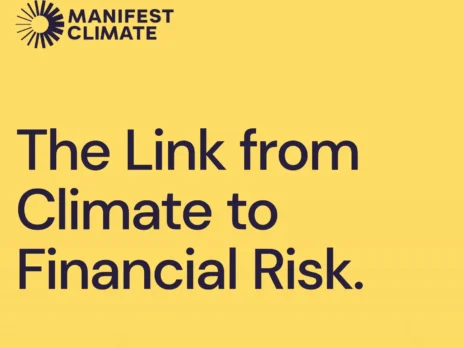

The global economy cannot navigate the climate crisis without empowering SMEs. According to figures from the OECD, such entities account for more than 99% of businesses and over 60% of industrial emissions across its member states.
However, the task can seem especially daunting for medium-size enterprises keen to define and execute strategies that position climate at the heart of their operations. Access to requisite skill sets and expertise often appears out of reach, both financially and with regard to the capacity and competency-building required.
‘Financial innovation for SME net-zero transition‘, a report co-authored earlier this year by the University of Cambridge Institute for Sustainability Leadership, found that 63% of smaller businesses had delayed climate action due to a perceived lack of skills and knowledge.
In what is already a challenging economic environment for many, pursuing unmandated change – which often involves significant cultural and operational reform – is a tough sell. However, inactivity is likely to have far more seismic consequences, both for businesses themselves and in the wider fight against climate change. The challenge is how to frame climate action and transparency in such a way that it becomes an urgent priority for all enterprises, regardless of their scale.
Seize the opportunity
“What must be understood is that this is an opportunity,” says Adam Rochwerg, head of climate solutions, operations at Manifest Climate. “The coming of different climate disclosure frameworks and guidelines provide a real chance to put one’s hand up and state your intent, as a smaller business, to be a leader in this field. Not only will that help you adapt to a climate-changed world, but being seen as a leader will also drive investment and business from those already contemplating climate risks and opportunities to their business.”
Indeed, while smaller enterprises may not yet be compelled to provide climate disclosures to the extent that larger organisations are increasingly mandated to, the shifting regulatory landscape is already indirectly forcing their hand. As bigger businesses come under increasing pressure to report indirect emissions, for example, those wishing to remain within their supply chain have little choice but to measure and report.
“Larger organisations are increasingly mandating such standards from across their ecosystems,” says Olena Kholodova, head of climate solutions, innovation at Manifest Climate. “Their partners need to get started on this journey and the earlier they start, the more they stand to gain. We already know where the economy is transitioning to, so getting there faster presents significant advantages.”
But without the equivalent scale of teams or resources at their disposal when compared with their larger brethren, acknowledging the benefits of climate action does not necessarily equate to being ready to formulate and execute a climate strategy. Rochwerg and Kholodova engage in extensive dialogue with businesses that are yet to set out on, or are still in the early stages of, their climate journeys, and hear common barriers and misapprehensions articulated.

“One is access to capital, the funding needed to effectively pursue action, and the other major issue is smaller teams feeling overwhelmed by the numbers of frameworks, methodologies, and various demands they are expected to keep up on,” says Rochwerg.
“There are so many things they are being asked to think about and they don’t know where to start. But that’s actually the conversation we want to have. Those issues are surmountable. The biggest step is recognising a need to take action – and these smaller and medium-sized organisations actually have some significant advantages when it comes to positioning climate at the heart of their business.”
Proximity to power
Indeed, while many lament a lack of scale, the nimbleness afforded to smaller and medium-sized enterprises means many of the engagement and cross-functional challenges faced by large businesses are often less of an issue.
Rochwerg and Kholodova talk of the need to speak to “climate leaders” within organisations. In a multinational, that might typically be a longstanding member of an ESG team who’s more versed in the marketing and CSR elements of the climate journey. This requires a degree of reprogramming on their part – and calls into question whether climate is viewed as a core business risk or a tick-box exercise. For medium-sized enterprises, that climate leader is far more likely to be directly involved in operations – and enjoy far greater proximity to key stakeholders, such as the CEO and CFO.
This means less interest in crafting an external-facing “climate story”, and often greater authenticity regarding one’s intent to pursue a truly cross-functional climate strategy that speaks to the core business. Both Rochwerg and Kholodova acknowledge that such a journey must start with governance – in Rochwerg’s words, “the foundation for good climate action”. They also agree that sharing climate competency across one’s leadership structure and ensuring it is not a siloed issue is a significant step.
“Without the governance structure in place – an ability to effectively communicate and assign responsibility – targets are effectively hot air,” Rochwerg continues. “It’s about leadership really understanding what climate impact looks like for their industry, what best practice looks like, and where real impact can be made.”
Kholodova points to the significance of her own background as a financial and management accountant, and that of Rochwerg, who came to climate strategy following a number of years practising law and working with international institutions. If climate is to be seen as a core business risk, it must be articulated in a language one’s core business can understand.
“You need to translate climate into a language that can be understood by all stakeholders,” she continues. “Having somebody lead who understands the business is valuable in that regard. You can build the climate competency, but you need that strategic understanding to really integrate climate into decision-making.”
Scaling climate competency
In order to build competency, surface and learn from best practices, prioritise actions and understand the impact, external expertise and guidance are required. Such services are in unprecedented demand and command spiralling costs, often putting them out of reach for all but the largest organisations.
Manifest Climate has recognised that democratising access to these capabilities is essential if the world is to see a successful climate transition. Its platform leverages machine learning algorithms to surface best practices by rapidly reviewing public disclosure documents. Climate insights and evaluations that would once have been delivered manually, often at great expense, are achieved at a fraction of the time and cost, providing clients of all sizes with decision-useful information that enhances and accelerates their climate journeys.

“It’s understandable to feel overwhelmed,” says Rochwerg. “We can step in and deal with those complexities, and serve as the experts that nobody can realistically expect organisations to have in-house on such a scale. It’s fast, efficient, and affordable in a way that large consultancy often isn’t for such businesses. And we do it with access to far more data, which is our bread and butter.”
Kholodova adds: “We want our clients to see us as an extension of their team. We come in as climate experts and, with the help of our software, simplify their climate journey, identifying priorities, building competency, educating on trends and requirements, and surfacing best practices.”
As well as seeing what climate leaders are doing, clients can also identify peers to track and monitor their progress against. “Climate is a constantly moving target and we empower you to track your targets as they move,” says Rochwerg.
However, while following the competition can be of huge benefit, collaboration promises to be a much more powerful tool. In order to properly work together, businesses must embrace transparency and honesty, open dialogue, and share not only their successes but also failures and areas for improvement. Rochwerg speaks of Manifest Climate clients increasingly calling one another to discuss problem-solving and strategy – a spirit of cooperation he contrasts starkly with the adversarial legal world in which he cut his teeth.
“A common misconception among businesses starting out is that they are on this journey alone,” explains Kholodova. “There is so much opportunity to accelerate your journey if you participate in the growing number of initiatives and programmes that are bringing leaders together to discuss their journeys openly.
“It doesn’t matter your size; nobody has this fully figured out yet. And that’s okay. Being transparent about where you stand, both to yourself and the market, is the most important step because that’s what will drive greater action. The frameworks and tools are there to empower organisations to do it, but you need to take that first step.”







